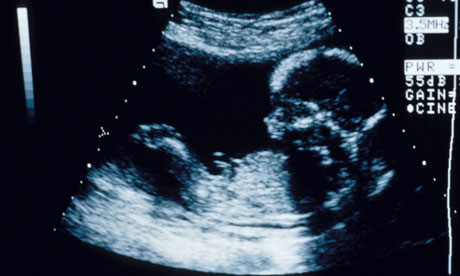
All pregnant women will be offered vaccination against whooping cough from Friday in an urgent effort by the government to halt the surge in deaths of small babies.
Ten children from across the UK have died from whooping cough in the first eight months of this year – up from seven in the whole of 2011.
In England and Wales, between January and August of this year, there were 4,791 cases of whooping cough in all ages, which is three times more than for the whole of last year.
The deaths are in newborn babies, who have not yet reached the age of two months, when they are routinely given their first vaccinations.
In the first eight months of this year, there were 302 cases among these unprotected babies under 12 weeks, compared with 115 cases in the same period in 2011.
Medical experts want all pregnant women to have a four-in one combination jab, which includes diphtheria, tetanus and polio as well as whooping cough, between weeks 28 and 38 of their pregnancy, giving enough time for them to make antibodies against the diseases that they can pass to their babies. The only available adult vaccine against whooping cough is the combined jab.
But many women are likely to feel very anxious about having a vaccination during pregnancy. Uptake of the flu jab, which was recommended for pregnant women in 2010, is low.
Professor Sally Davies, the chief medical officer, recognised women's concerns. "I know pregnant women can feel very vulnerable about protecting themselves and their baby's health," she said.
"Clearly we don't want pregnant women taking medication of any form unless it is necessary." But, she said, she could not emphasise enough the importance of protecting babies against the very real threat of the whooping cough epidemic.
Whooping cough, spread by coughs and sneezes, is very contagious and not always diagnosed in adults, who may suffer nothing more than a long-lasting cough. "It is vital that babies are protected from the day they are born," she said.
The government's advisory body, the Joint Committee on Vaccines and Immunisation, has said there are no safety concerns around giving the jab to pregnant women.
The inactivated vaccine, called Repevax and made by Sanofi Pasteur, has been given to pregnant women in the US since last year because of a similar rise in whooping cough cases, said director of immunisation Professor David Salisbury.
It also has a long safety record in children. "We have used this vaccine for close to a decade as a pre-school booster. It is used as a booster in Germany and France as a booster for adults.
"Some women assuredly will have been pregnant when they were vaccinated," he said.
"Because we have close to a decade of use in children, we know the safety profile is excellent."
Vaccinating pregnant women was not a way to get the vaccine into the baby, he stressed.
"We vaccinate the mother to boost her own immunity, so that the antibodies she makes will be actively transported across the placenta into the baby."
Dr Mary Ramsay, an epidemiologist from the Health Protection Agency, could not say why there has been a sharp rise in whooping cough cases.
"We are not entirely clear," she said. "Many other developed countries have experienced an increase in incidence."
Unlike the measles outbreaks that have taken place in parts of the country, there is no suggestion that anxieties about vaccine safety have caused parents not to bring their babies to the clinic for the routine vaccination at two, three and four months. About 95% of babies are immunised.
"It is nothing to do with parents not bringing their children to be vaccinated. It is nothing to do with waiting lists at GPs. It is not to do with lack of coverage," said Salisbury.
But babies cannot be vaccinated until they are old enough to make the antibodies against the disease themselves.
Payments have been agreed with GPs who will give the vaccinations and the royal colleges support the programme.
Dr Peter Carter, general secretary of the Royal College of Nursing said: "Vaccination is the most effective way to prevent infection and this programme to reduce infant morbidity and mortality is to be welcomed.
"We know that there has been a recent rise in the number of babies and infants suffering and dying from whooping cough, and we support the Department of Health in this initiative."
But he added: "Given the speed and scale of this programme, it needs to be appropriately planned, taking into account the capacity and capability of those healthcare workers who will carry out the vaccinations."

